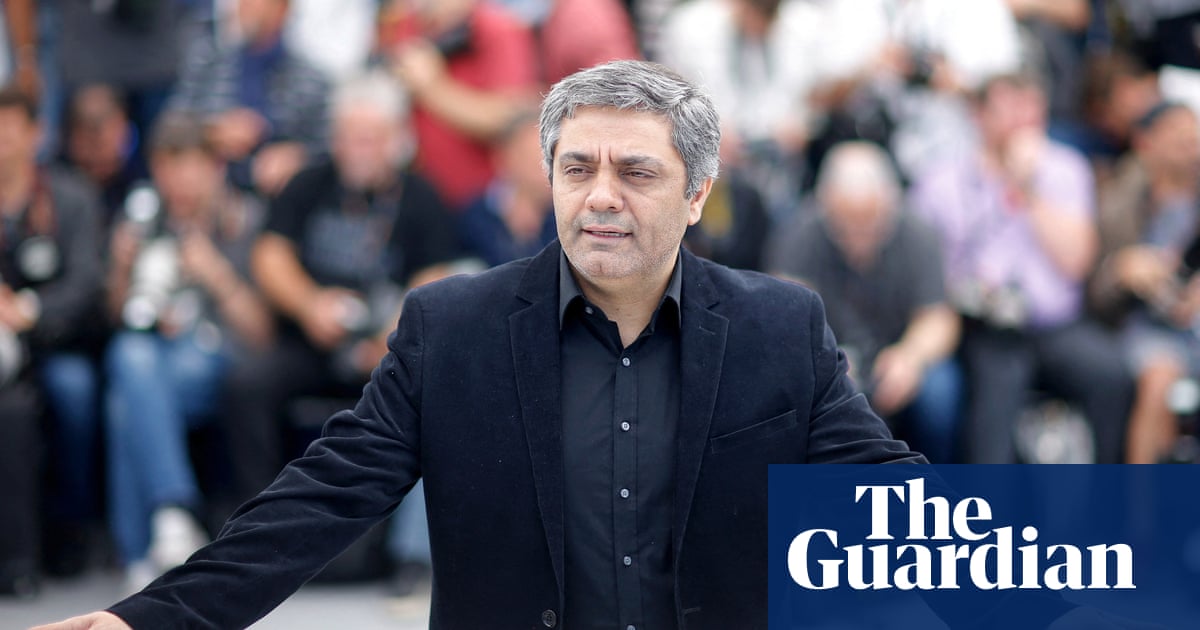The Iranian director Mohammad Rasoulof has been sentenced to eight years in prison, flogging, a fine and the confiscation of property, his lawyer has confirmed.
Writing on X, Babak Paknia, a human rights lawyer representing Rasoulof, said that the judgment was confirmed in a court of appeal and the case had now been sent for enforcement.
He continued by saying the chief reasons given for the punishment were Rasoulof’s public statements, as well as his continued involvement in making films and documentaries which the court described as “examples of collusion with the intention of committing a crime against the country’s security”.
Rasoulof, 52, is one of Iran’s leading directors, whose latest film, The Seed of the Sacred Fig, is due to premiere at the Cannes film festival next week. Since its inclusion was announced last month, the director and the festival had come under considerable pressure from Iranian authorities to pull the film from competition.
Producers on the film reported harassment by the state police, Paknia has previously reported on X, and actors were summoned for questioning and banned from leaving the country.
Paknia confirmed the latest developments in an email, adding: “He is accused of making [The Seed of the Sacred Fig] without obtaining a license from the related authorities, alongside accusations that the actresses were not applying hijab properly and were filmed without hijab. All key members of the film are banned from leaving the country and have been investigated by the security forces of the Ministry of Intelligence.”
Wednesday’s sentence is the harshest yet handed out to the director. In 2010, he was sentenced to six years in prison, later reduced to one year, after an accusation of filming without the correct permit. In 2017, he was in effect banned from leaving the country after his passport was confiscated on his return to Iran.
Two years later, the Islamic revolutionary court sentenced him to a one year prison term and a two-year ban on leaving the country and any participation in social or political activity. This was prompted by his 2017 film, A Man of Integrity, a drama about endemic corruption in Iran, which won the Un Certain Regard sidebar at Cannes.
In 2020, he was sentenced to a further year in prison and a two-year film-making ban for “propaganda against the system”, meaning he could not attend the Berlin film festival in February 2020, where his film There Is No Evil – a drama about the death penalty in Iran – won the top prize, the Golden Bear.
Another incarceration followed in July 2022, after Rasoulof posted an appeal urging Iranian security forces to stop using weapons during protests prompted by a building collapse in the south-western city of Abadan. He was released the following February for health reasons, but barred from attending the Cannes film festival, where he was due to serve as a member of the Un Certain Regard jury.
Rasoulof’s films stand alongside those of fellow countrymen Abbas Kiarostami, Asghar Farhadi and Jafar Panahi in the critical acclaim in which they are held outside Iran. Of these, Panahi had previously been the most consistently persecuted by the Iranian state, the subject of numerous imprisonments and house arrests.
Panahi’s latest imprisonment, in July 2022, ended in February 2023 after he went on hunger strike. Shortly after, he left Iran for the first time in 14 years.

James Parker is a UK-based entertainment aficionado who delves into the glitz and glamour of the entertainment industry. From Hollywood to the West End, he offers readers an insider’s perspective on the world of movies, music, and pop culture.








